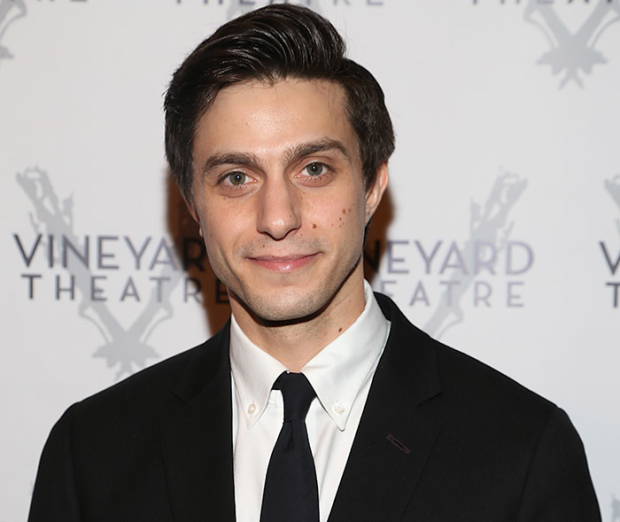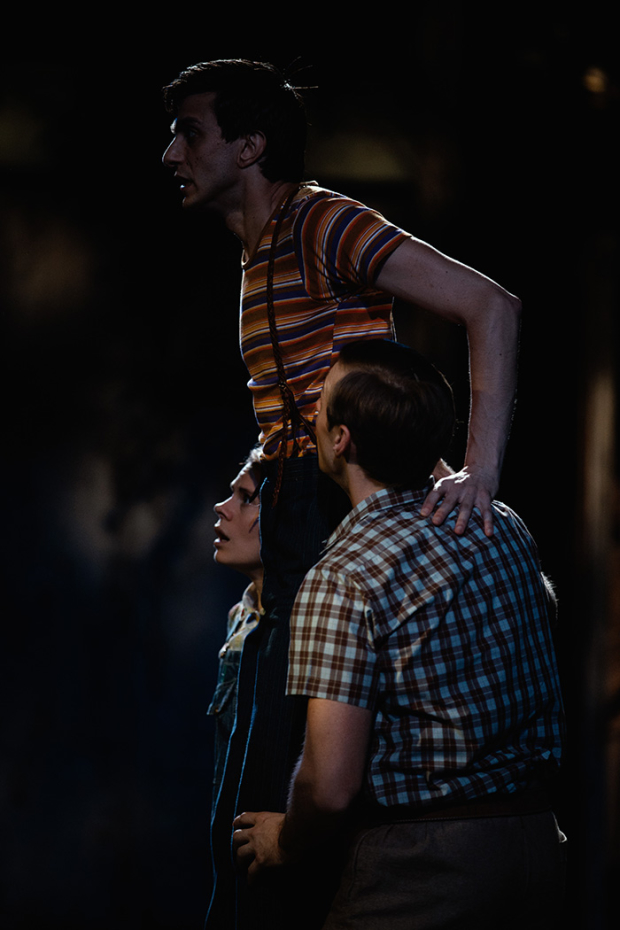Gideon Glick on His Truman Capote-Inspired Dill in To Kill a Mockingbird
In Aaron Sorkin's stage adaptation of To Kill a Mockingbird, Charles Baker "Dill" Harris isn't just the quirky summer sidekick to Scout and Jem Finch. In the adult body of Gideon Glick, he vies for narrative control, right alongside the grown-up versions of Scout and Jem (played by Celia Keenan-Bolger and Will Pullen) — all three of whom recount their summer adventures through Maycomb, Alabama, on the tragic backdrop of Tom Robinson's trial.
This agency over storytelling has translated to Glick's commanding performance of the young "southern dandy" (as Glick calls him) with a wild imagination and a yearning for familial love. He and the creative team drew particular inspiration from Truman Capote (Harper Lee's childhood friend and the basis for Dill), leaning into his queerness as another doorway into the concept of "otherness" that the story of To Kill a Mockingbird so beautifully explores.
"I remembered Dill," Glick said, recalling his mindset when first revisiting the novel. "But he wasn't as strong of a memory as Scout, or Boo, or Atticus." Audiences who visit the Shubert Theatre will likely walk away with a much different experience.

(© Tricia Baron)
You've been with To Kill a Mockingbird since its early stages of development. Do you remember how you prepared your Dill before your first workshop?
I didn't have the script — so the initial read was a cold read, in a southern accent, in front of Aaron Sorkin, Bart Sher, and Scott Rudin. So that was very nerve-racking. Most of the research came after the workshop. When I found out Dill is based on Truman Capote, that opened up a whole world for me.
How so?
The character is an inherently queer character. That's Capote's essence, and that's been a conscious choice from everybody on the creative team and me. Also the writerliness of who Capote is. Because the three kids are narrators, it's about agency over the story. It's very subtle but there's a bit of a competition between Scout and Dill about who gets to tell the story, and how much they get to insert, and that's very much Harper Lee and Truman Capote writing their books. Even their narration at the end about Bob Ewell falling on his knife — that's In Cold Blood. Aaron did an extraordinary job infusing that into the show.
What pieces of Capote's history and persona were most useful to you in building your version of Dill?
I read a lot of biographies, and I read a lot of his work. His first book, which he published in 1948, is called Other Voices, Other Rooms. The protagonist of the book is named Joel Knox, and he's a 13-year-old queer kid in the south and that was a really big inspiration for me. I didn't concern myself so much with his mannerisms. Capote is very distinct and I didn't want people to feel that I was doing any form of an impersonation, because then I think you lose track of Dill. It's also a child, so it's going to be very different than the Capote that we know. So it was more his body of work and his life that infused my interpretation.
I read that you also spent some time in the South?
Celia, Will, and I, all went down separately to Monroeville, the place Maycomb is based on, and that was really helpful. Capote is so heroic to me because he was so unabashedly him, and to do that in the 1930s South — it takes a really strong backbone. And his queerness is a really big part of what makes this character come alive. For all intents and purposes, he shouldn't be that way, and he is unabashedly that way. So that was very informative to me.
Dill tells a lot of tall tales as a way of ingratiating himself to the Finch family. Did you have any of those storytelling impulses as a child?
I think there was an aspect of me that was that way. I was a young kid who loved attention and who was a theater kid. I think I'm living my young queer fantasies on Broadway right now, where I can be a little gay 8- to 10-year-old just skipping around on a Broadway stage. What I find so amazing is that Dill is coming to life in this different way, and he's never really been taught this way in schools. I didn't learn him this way and I don't think other people did either. It's a book about empathy and otherness and yet here you have this queer character who's been under our nose the whole time and we don't talk about it. I love that this adaptation really brings that to life.
Another exciting thing this adaptation does is challenge our notion of empathy. Atticus famously teaches his children to climb into other people's skin and walk around, but by the end of the play, we're led to believe that might not always be the best tactic.
What's incredible about what Aaron has done is he's taken these notions that we love about this book and he's shifting them and challenging them. One of my favorite scenes is the confrontation between Calpurnia and Atticus: He goes, "I believe in being respectful," and she goes, "No matter who you're disrespecting by doing it." It gives me chills to even quote it. We are in a time where we talk about civility and being bipartisan and seeing both sides, but sometimes, you have to take a side. You have to take a side to fight.

(© Julieta Cervantes)










